CAPXEJEL a Website for Knowledge of Computerization Management in the People's Courts
CAPXEJEL un sitio web para el conocimiento de la gestión de la informatización en los tribunales populares
Main Article Content
Abstract
The training proposal offered in this research should contribute to raising the preparation of the managers and workers of the Popular Courts of the Isla de la Juventud, Cuba, in the computerization management processes carried out in this legal institution. in correspondence with the Computerization Program of Cuban society. The work presents, based on the essential pedagogical, didactic and technological foundations, the website that serves as a technological platform for training. The main contribution of the work is of a practical nature and is constituted by the methodological proposal itself and its technological platform: the Electronic Judicial File Training website CAPXEJEL; The latter incorporates the essential elements for its use as a teaching medium, object of study, work tool and meets the basic requirements for achieving the objectives for which it is proposed
Keywords
Downloads
Article Details
References (SEE)
Biasoli, V. M., & Bortolus, A. (2022). Nuevas tecnologías. Herramientas de información, comunicación y movilización (Doctoral dissertation, Universidad Nacional de La Plata).
Dmitrieva, A. A., & Pastukhov, P. S. (2023). Concept of Electronic Evidence in Criminal Legal Procedure. Journal of Digital Technologies and Law, 1(1), 270-295. https://cyberleninka.ru/article/n/concept-of-electronic-evidence-in-criminal-legal-procedure
Dorantes, G. L. (2023). Internet, sociedad y poder. Democracia digital: comunicación política en la era de la hipermediación. UNAM, Facultad de Ciencias Políticas y Sociales.
Fernández, C. T., & Rivero, W. J. (2022). Capítulo 1. El ODS 16 y su impacto en una justicia 4.0 de calidad: funcionalidad, retos y actualidad normativa desde la alfabetización digital en Cuba. Derecho, legislación y políticas públicas en el marco de los ODS.
Gámez, M. R. V. (2020). El derecho a la desconexión digital: perspectiva comparada y riesgos asociados. Relaciones Laborales y Derecho del Empleo. https://ejcls.adapt.it/index.php/rlde_adapt/article/view/836
González, L., Borges, M. A., Salas, S. R., Fernández, M., & Travieso, N. (2022). Estrategia de grado científico para la Universidad de Ciencias Médicas de Santiago de Cuba. Medisan, 26(4). http://scielo.sld.cu/scielo.php?pid=S1029-30192022000400014&script=sci_arttext
Legrá, L. C. (2020). Componente para la gestión del turnado en el expediente judicial electrónico (Tesis de Grado). https://repositorio.uci.cu/handle/123456789/10345
Limberger, T., Giannakos, D. B. D. S., & Szinvelski, M. M. (2022). Can Judges be Replaced by Machines? The Brazilian Case. Mexican law review, 14(2), 53-81. https://www.scielo.org.mx/scielo.php?pid=S1870-05782022000100053&script=sci_arttext
Piedra, T. W., & Batista, A. S. (2020). La gestión de costos ABC y su impacto en la administración de justicia. Revista cubana de finanzas y precios, 4(4), 96-114. https://observatorio.anec.cu/uploads/ff9761e9-d659-4a33-bb6a-6d8050216f72.pdf
Sepúlveda, D. P., & Machuca, R. C. (2021). Inteligencia artificial y derecho. Problemas, desafíos y oportunidades. Vniversitas, 70. https://www.redalyc.org/journal/825/82569129005/82569129005.pdf








